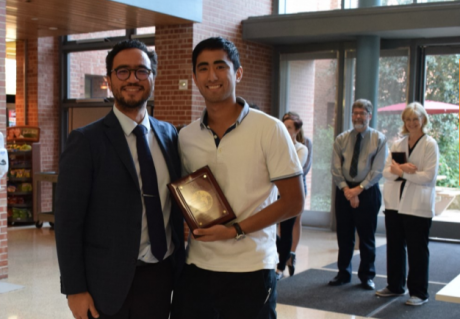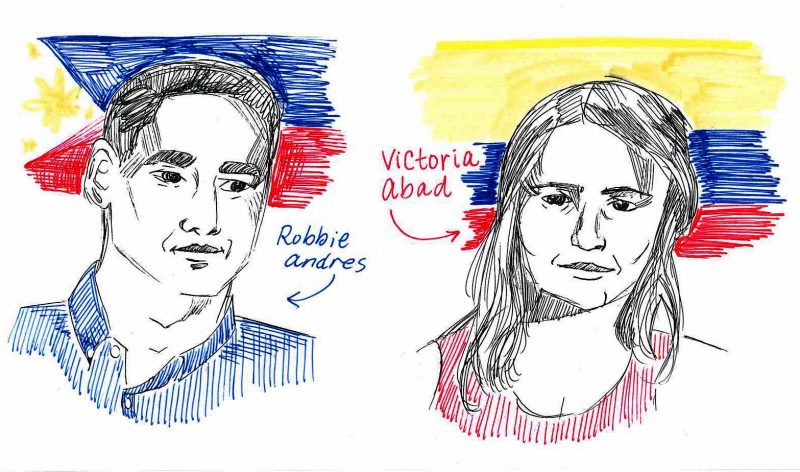We often think of language, culture and nationality as common denominators for friendship and involvement on a university campus. For example, it is common to assume that international students from the same country will hang out together. I was an international student in China for one year. However, because I wanted to learn to speak Chinese, I avoided hanging out with other Americans and other native English speakers like the plague. Another misconception is that students from a particular continent, like Africa, will naturally hang out together. In reality, a student from Kenya is no more likely to make friends with a student from South Sudan than a student from Texas would want to make friends with a student just because she is from Minnesota. Moreover, like U.S. students, international students choose their involvements and friendships based on common interests, virtues, thinking and other ideals.
Examples of international students who are involved in the “Trinity mix”
Victoria Abad is from Ecuador and is an economics major. Her passion is dancing. She serves at the co-captain of Loon-E Crew and is a member of the Trinity Ambassadors. In addition, she has held several on-campus jobs.
Jose Roberto “Robbie” Andres is from the Philippines and is a finance major. He is the captain of the Trinity Men’s Soccer Club, a resident assistant, a member of the fraternity Omega Phi and the founder of the San Antonio AI Meetup, Growing with Artificial Intelligence. In 2017, the Center for International Engagement presented him with the award for outstanding achievement in international education, because of his successful integration into Trinity culture. Abad and Andres are just two of many Trinity students from other countries who have blended in extremely well.

Love and Respect Still Go a Long Way!
We, the ‘homegrown’ Trinity faculty, staff and students, play significant roles in helping international students become successful members of the Trinity community. Soon after I arrived at Trinity in 2014, a fellow staff member said that a way to view Trinity is “it is a secular university with religious roots.” In that spirit, and by drawing upon a unique characteristic of Texas culture, I would like to propose two principles for interaction with international students and scholars at Trinity.
First, from one of Trinity’s roots, the Bible:
“When a foreigner resides with you in your land, you must not oppress him. The foreigner who resides with you must be to you like a native citizen among you; so you must love him as yourself, because you were foreigners in the land of Egypt. I am the Lord your God.” — Leviticus 19:33–34, New English Translation.
Principle number one: “… love the [international] as yourself” and treat him as much as possible as ‘a native citizen.’ This over 2,000-year-old principle works well when relating to most people. We are the hosts and internationals are our guests. Therefore, we should love and respect them, even if we disagree with their opinions or beliefs.
Second, Texas developed a culture that is unique to the 50 states. I have visited all 50. It is the only state where citizens routinely display the state flag. Only upon my arrival in Texas was I personally welcomed on several occasions as a new resident from out of state. Finally, it was in Texas where I learned that you should always keep salsa and chips handy for unexpected guests.
Principle number two: Embrace the long-held Texan custom of being a welcoming state. Welcome international students to Trinity! Welcome them to Texas! Bring out the salsa and chips or maybe just a cup of coffee at Einstein’s. Make friends with the world that has come to us!
Like U.S. students, international students are individuals. Consequently, it is best to recognize them as such. If you are currently growing, discovering and becoming internationally, keep up the great work! If not, start today by practicing principles one and two! Finally, if you are an international student and you feel you are still on the outside, please take advantage of the many opportunities — especially those offered through Student Involvement — to become a successful member of the Trinity community!






